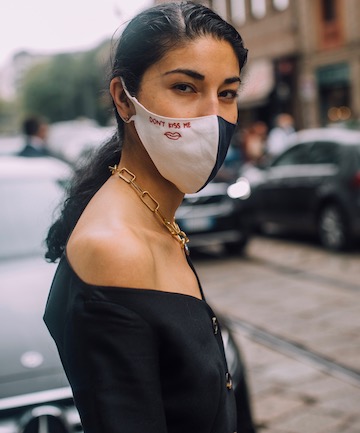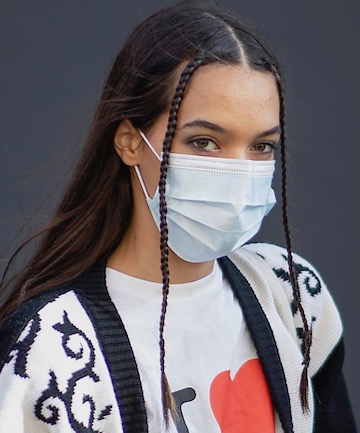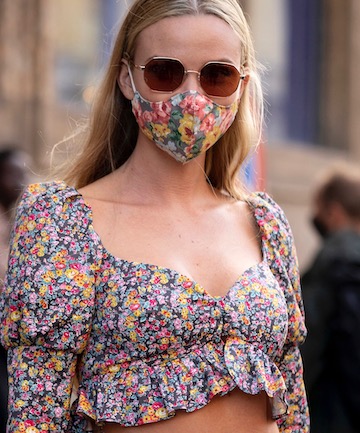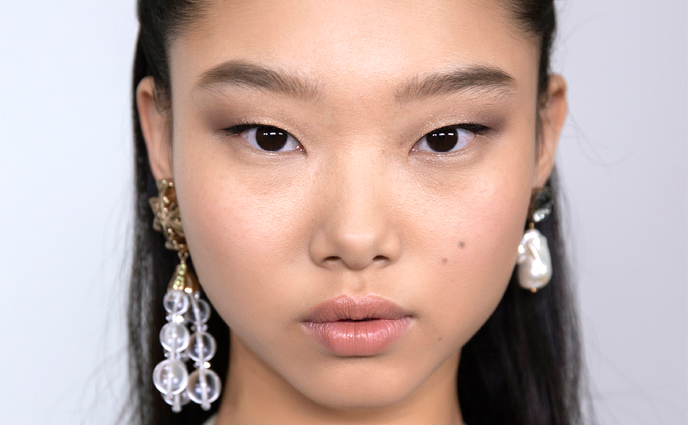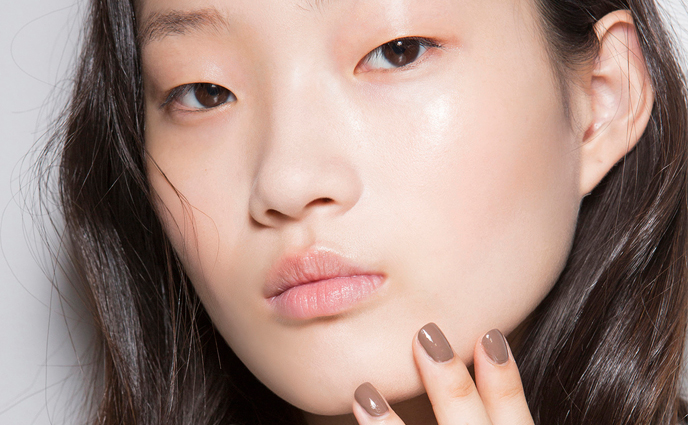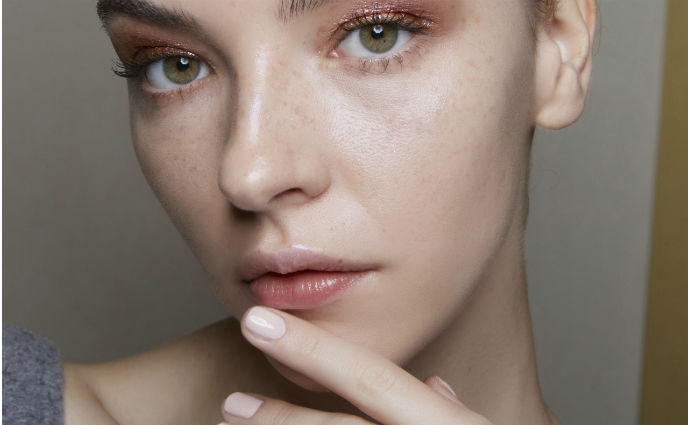There are more masks and designs by the day. They vary in terms of protection against the virus and the sun. But masks don't guarantee sun protection.
"As a general rule, the darker and more tightly woven the fabric is, the more protection it affords," says Dr. Elizabeth Hale, board-certified dermatologist and clinical associate professor of dermatology at New York University Langone Medical Center. "However, masks that are light in color and material (both surgical and cloth) let through some ultraviolet rays with no real regulation so it's a good idea to protect your entire face every day."
That doesn't mean you can skip sunscreen when wearing a dark mask. A black mask does offer slightly more sun protection, as does a denser weave, but it's still not enough.
On the flip side, Nussbaum recommends masks in lighter colors because they will not attract the sun. She also prefers paper masks for acne-prone patients. "It is really trial and error because there are so many options..."
Image via Imaxtree
Excellent sunscreen habits dictate that we reapply sunscreen (boasting SPF 30 or higher) throughout the day. The same applies when wearing a mask. Linkner suggests reapplying SPF every two hours when outdoors in sustained sunlight, including under your mask. If you're inside most of the day, it's less important to continuously reapply SPF. The most important thing is to get a good first coat in the morning. Hale suggests mineral SPF powders or sprays for easy application.
Image via Imaxtree
Any devoted lipstick wearer knows that keeping a lip product on under a mask presents some challenges. The same can be said about sunscreen. Invariably some sunscreen will get absorbed or wiped off on a mask, which is why it's important to reapply sunscreen every few hours. Hale recommends making sure sunscreen is completely dry before putting on a mask.
Image via Imaxtree


